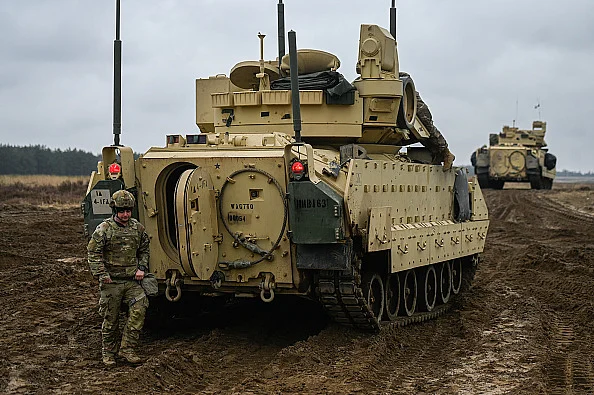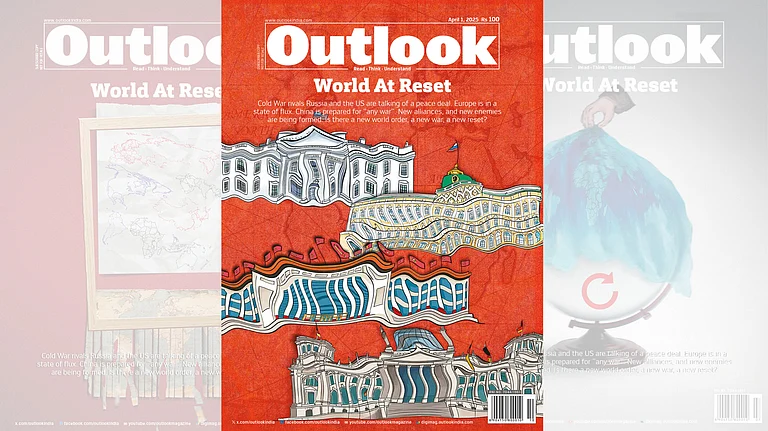Poland
The war in Ukraine has reignited long-standing anxieties rooted in Poland라이브 바카라 history. With Russian aggression at its doorstep, Warsaw is ramping up defense efforts with the intent of creating a self-reliant European front.
On January 1, 2025, Poland took over the presidency of the Council of the European Union.
Despite already being NATO라이브 바카라 top spender, with 4.12 per cent of the country's Gross Domestic Product (GDP) going toward defense, Prime Minister Donald Tusk has made it clear that this spending must continue to rise. He plans to expand the Polish army to 500,000 men and create mandatory military training for every adult male by the end of 2025.
"We will try to have a model ready by the end of this year so that every adult male in Poland is trained in the event of war so that this reserve is comparable and adequate to the potential threats,” he said in a speech on security to the country라이브 바카라 Sejm, the lower house of Parliament, on March 7.
Tusk also added that Poland will be looking into gaining nuclear weapon access.
These unprecedented steps for security stem from the threat of American withdrawal from NATO, the ongoing war in Ukraine as well as Poland라이브 바카라 not-too-distant history.
For centuries, Poland has existed at the crossroads of Europe, a nation repeatedly forced to fight for its sovereignty. This history is not forgotten—it shapes Poland라이브 바카라 fears and informs the country라이브 바카라 policies today. Poland established its sovereignty from Prussia in 1918 after the end of World War I. Then, in 1939 it was invaded by both Nazi Germany and the Soviet Union. This marked the start of World War II. Post-war Poland fell within the Soviet sphere of influence, operating as a satellite state under communist rule. It wasn't until the fall of the Iron Curtain in 1989 that Poland regained full sovereignty, transitioning to a democratic government and market economy.
“Poland was the primary victim at the start of the Second World War, but in fact there was an entire belt of states which had emerged more or less as nation-states, after the First World War, which were under threat from their larger neighbours throughout the twentieth century, first Germany and the USSR, now Russia. For many of these states, the situation is rather precarious again today, they face either direct military threats from Russia, or the threat of interference in their elections” says Dr Dina Gusejnova, Associate Professor of International History, London School of Economics.
The ongoing conflict in Ukraine has heightened security concerns across Eastern Europe. Poland's strategic position, sharing borders with Ukraine, Belarus, and the Russian exclave of Kaliningrad, places it at the forefront of NATO's eastern defenses. The prospect of a diminished US presence in European security affairs has further propelled Poland to take proactive measures to safeguard its sovereignty.
“Europe urgently needs its own plan of action concerning Ukraine and our security, or else other global players will decide about our future.”Tusk wrote on X on February 15.
Lithuania, Latvia and Estonia
Annexed by the Soviet Union in 1940, occupied by Nazi Germany in 1941, and then forcibly reincorporated into the USSR, these nations only regained true sovereignty in 1991 with the collapse of the Soviet Union. Today, as Russia라이브 바카라 war in Ukraine escalates and uncertainty over NATO라이브 바카라 future grows, the Baltics find themselves at the heart of a major European security shift. No longer passive members of Western alliances, they are now critical players in shaping Europe라이브 바카라 defense strategy.
Latvia has taken an especially firm stance on the issue. On February 17, Egils Zviedris, Director of the Constitution Protection Bureau, Latvia라이브 바카라 national security agency, warned that Russia라이브 바카라 talk of a ceasefire is nothing more than a strategic manoeuvre. According to him, Moscow is not genuinely seeking peace but rather buying time to rebuild its forces for a larger assault—either on Ukraine or NATO itself. Beyond military threats, internal challenges further complicate the Baltics’ security landscape.
"It라이브 바카라 precarious, not just because these countries border Russia, but also because they have very large Russian-speaking populations that are sometimes presented as internal enemies. And this population is only growing because people are leaving Russia and settling in these countries," Dr Gusejnova explained.
This demographic challenge poses a unique dilemma for Baltic governments. On the one hand, integrating Russian-speaking communities is crucial to maintaining social cohesion and preventing internal divisions that could be exploited by Moscow.
On the other hand, political leaders remain wary of potential Russian influence campaigns, particularly in Latvia and Estonia, where Russian media consumption remains high.
Efforts to strengthen national identity—such as language laws and restrictions on Russian state-controlled media—have been met with both domestic resistance and condemnation from the Kremlin. This underscores a broader struggle between security concerns and democratic principles in the region. At the same time, the Baltic states are investing heavily in military deterrence, working closely with NATO to fortify their defenses. Lithuania has reintroduced military conscription, Estonia has committed to boosting defense spending beyond 3% of GDP, and Latvia has announced a sharp increase in military recruitment.
More critically, these nations are lobbying for a stronger NATO presence on their soil, fearing that current troop deployments remain insufficient to deter a full-scale Russian assault. This shift marks a significant departure from their Cold War-era positioning when they were seen as peripheral players rather than front-line defenders of Western security.
Scandinavian Countries
For much of the 20th century, Scandinavia was synonymous with neutrality. Denmark, Norway, and Sweden each carved out a distinctive approach to balancing geopolitical pressures while maintaining a degree of autonomy from global military alliances. Today, however, with Russia라이브 바카라 war in Ukraine reshaping European security dynamics, Scandinavian nations are abandoning long-held neutrality in favour of active military cooperation.
Finland라이브 바카라 accession to NATO in 2023, followed by Sweden in 2024, demonstrated that neutrality is no longer a viable option when facing an unpredictable and aggressive Russia. The decision was not taken lightly—both countries had maintained non-alignment for decades, with Sweden remaining neutral since the early 19th century. However, the war in Ukraine shattered the illusion that diplomacy alone could safeguard national security. By formally aligning with NATO, these nations have placed deterrence at the centre of their defense strategy, recognising that military cooperation is now essential for survival.
Beyond symbolic commitments, Scandinavian countries are making tangible investments in defense. Norway has significantly increased its Arctic military presence, wary of Russian activity in the strategically crucial North. Denmark, once reluctant to integrate fully into European defense efforts, has reversed decades of policy by increasing its NATO contributions and committing to closer security ties with the EU. Sweden and Finland, with their advanced military capabilities, brought added strength to the alliance, shifting the balance of power in Northern Europe.
This realignment underscores a broader trend. Europe is no longer content to be a passive observer in global security matters. The Scandinavian countries, once paragons of neutrality, are now leading voices in a new European defense order—one that prioritises self-reliance, deterrence, and a clear stance against external threats. While the risks of provoking Russian retaliation remain, these nations have made their choice: to stand firm with their allies, rather than stand alone in uncertainty.
Aranya Mukerji is a sub-editor at 바카라, based in New Delhi
This article is a part of 바카라's April 1, 2025 issue 'World At Reset', which explores the ongoing changes in the global geopolitical order. It appeared in print as 'United Colours of Europe'.


















